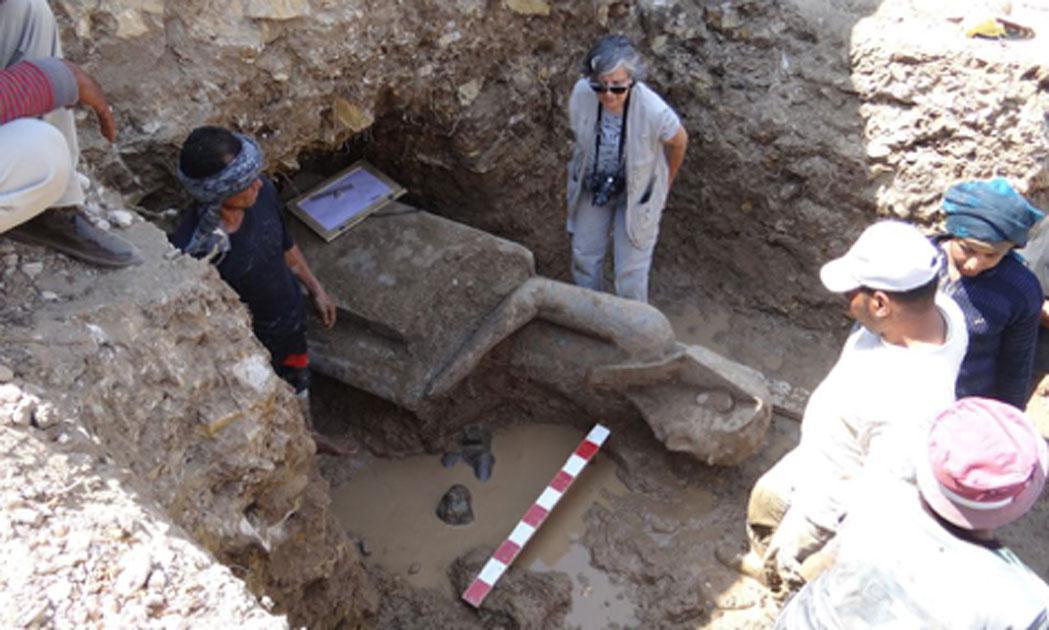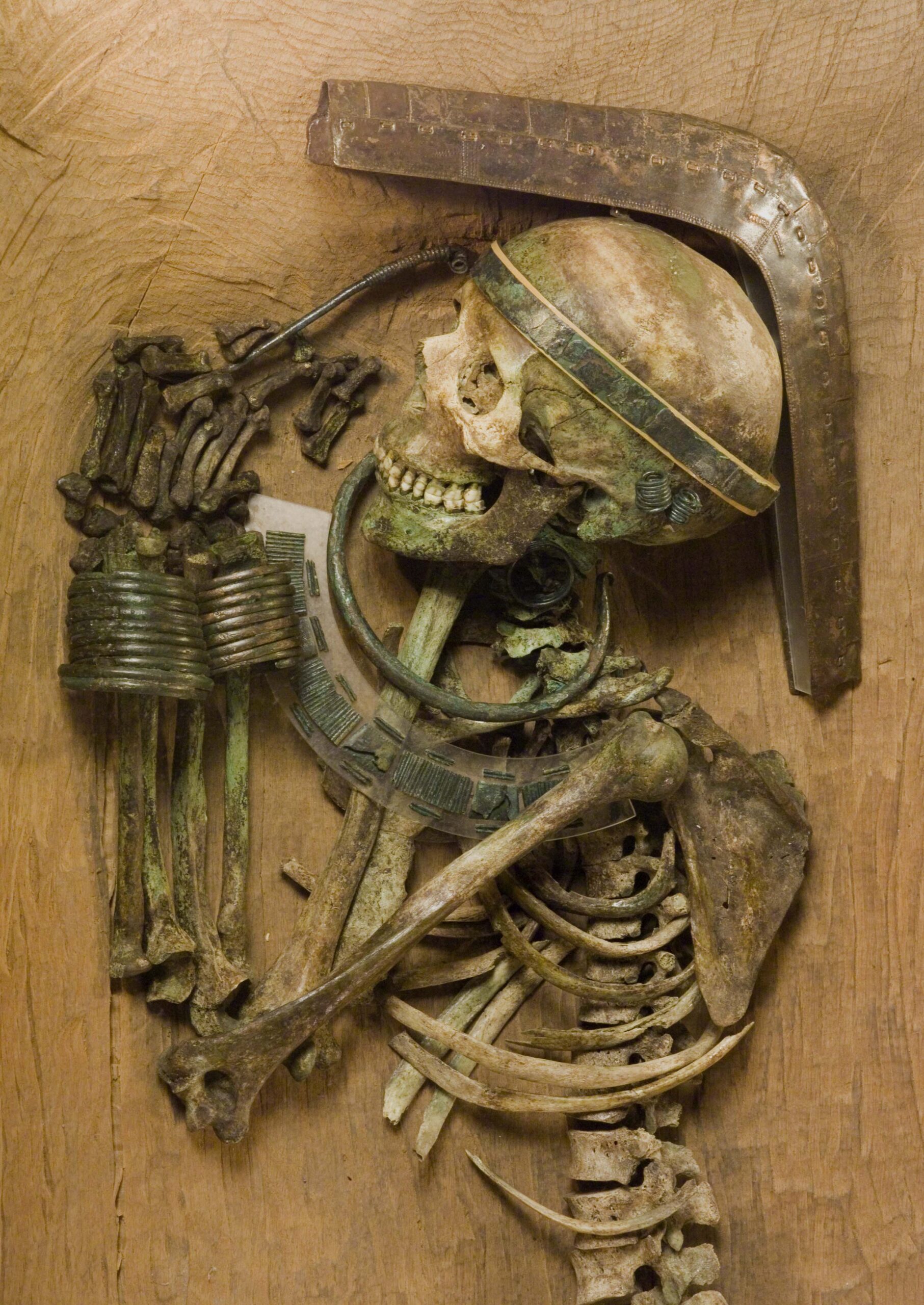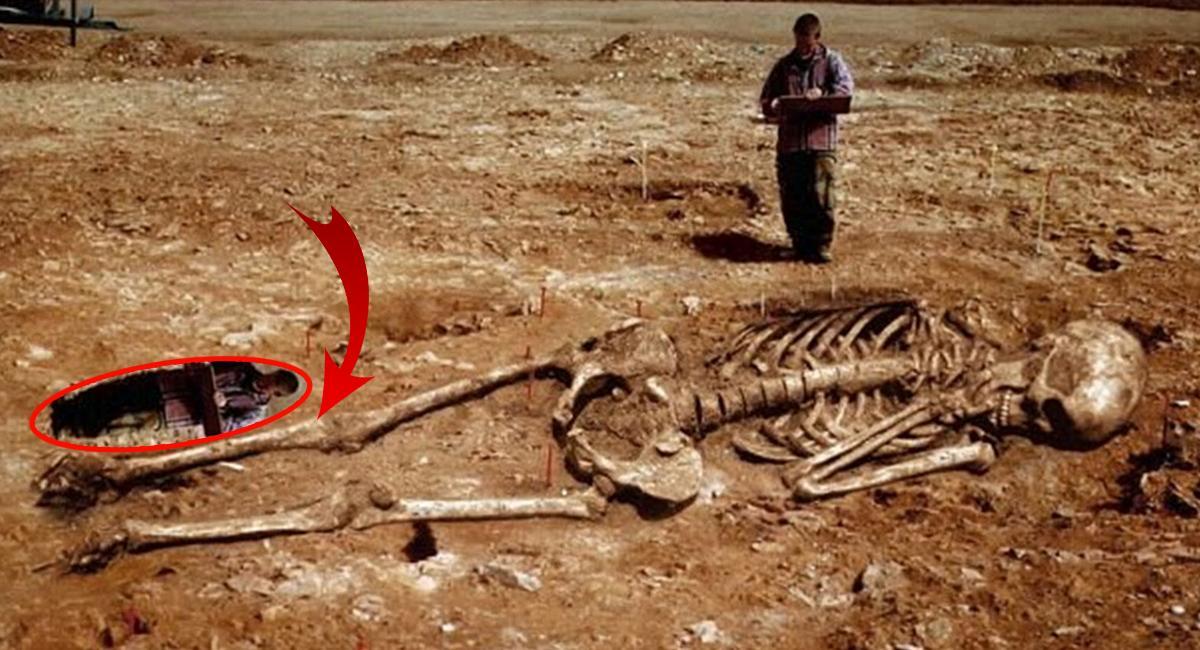This coffin, belonging to a woman called Takhebkhenem, is made of wood, with polychrome painted decoration. The British Museum notes that, “the vignettes, which are executed in a very conservative style, show the deceased carrying a sistrum before Osiris, her mummy on a bier, and a strange hawk-headed kneeling figure, described as Osiris, there is a ram-headed vulture, crowned with a solar disc, on the breast, with protective falcon beneath.”

Takhebkhenem, was the daughter of man called Pedikhons, and she lived in the Late Period of Dynastic Ancient Egypt. She held the тιтle, “Lady of the House”. “Lady of the House” or “nbt-pr”, was a common тιтle for women in Ancient Egypt. Wives, daughters, grandmothers or any type of female relative tended to share this тιтle.

Inside the coffin lid is the goddess Nut. Nut, representing the night sky, the goddess of the stars, is usually depicted upon the inside of coffin lids, in order to protect the deceased. She literally arches over the body of the deceased, therefore, she is often painted face-on, a rather unusual thing for Egyptian 2-dimensional art, however, when you think of how she will be arching over the ᴅᴇᴀᴅ, her body facing us full frontal makes absolute artistic and functional sense.

Summary:
Wooden coffin of Takhebkhenem, Lady of the House, daughter of Pedikhons, with polychrome painted decorationLate Period, c. 713–332 B.C.From ThebesNow on display at the British Museum. EA6691



